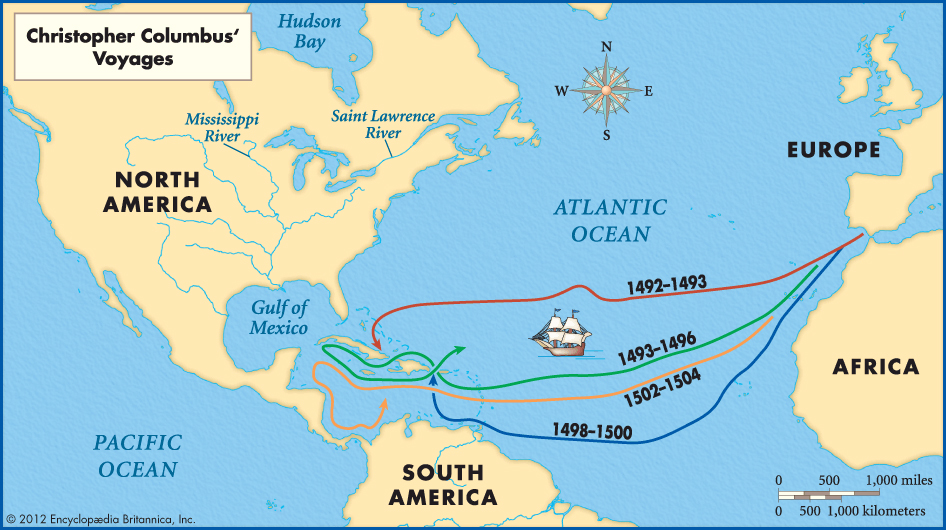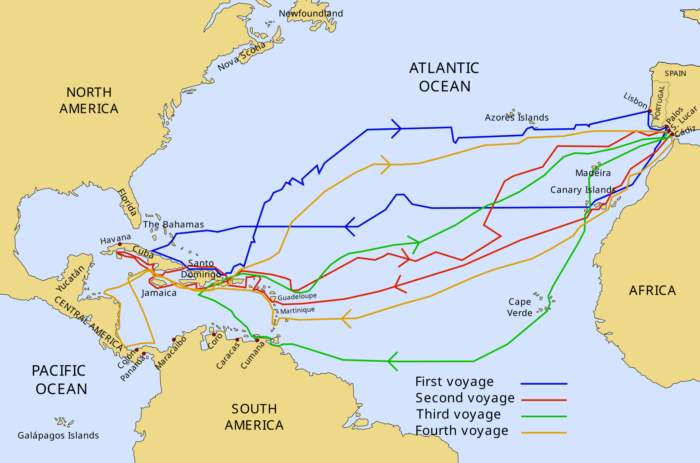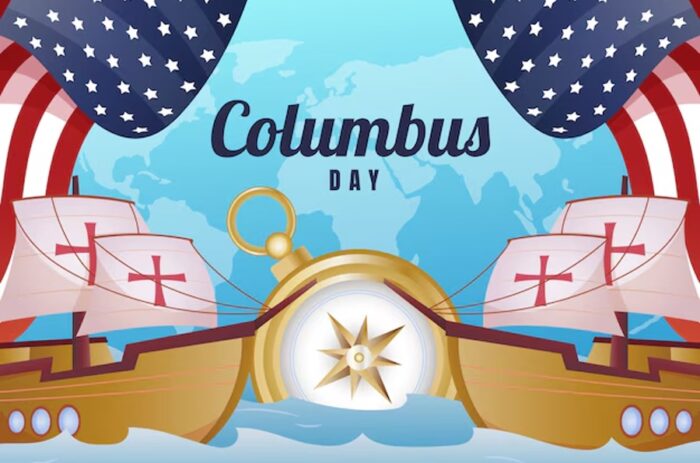
print Print...
(by Jeanne Allen, Washington Examiner) – Today, Columbus Day is unjustly under assault in some quarters. City councils in some cities have voted to replace it with “Indigenous Peoples Day,” or something similar, and many students are taught nothing of Columbus’ contributions. Thankfully, it remains a federal holiday and a state holiday as well in much of the country.

Bronze statue of Christopher Columbus as he surveys the horizon, with a map in hand, by sculptor Carl Brioschi. Dedicated on Italian Day in 1933 in Chicago’s Grant Park at A Century of Progress, [the city’s second world’s fair] from the Italian-American Commuinity of Illinois.
Even by today’s standards, and despite what you might hear, Columbus was a man whose approach to the native people he met during his first voyage was exemplary, taking delight in their friendliness and happy demeanor. He was firm in his orders to his men not to abuse them in any way, and severely disciplined those who disobeyed. He was less pleased with those from other tribes he encountered later, such as the warlike Caribs, who practiced canabalism. …
It turned out that while millions of people had developed distinct civilizations before Columbus dared to cross the Atlantic Ocean barrier that separated them, human nature was much the same in each place:
Slavery was a well-established practice in the Americas long before Columbus arrived. The Spanish monarchs, on the other hand, forbade slavery of the indigenous people of the Americas, granting them same rights of citizenship enjoyed by the people of Spain.
Today’s largely secular society often has trouble understanding that among the most important motivations of both Columbus and the Spanish monarchs was a desire to evangelize those they encountered elsewhere in the world to Christianity. Deeply-felt religious beliefs and aspirations appear again and again in Columbus’s diaries and other journals and documents. …..
Presidents have lauded Columbus for well over a century. President William Howard Taft personally reviewed a huge parade at the unveiling the Columbus Memorial in front of Washington DC’s Union Station in 1912.
President Ronald Reagan declared him: “a brilliant navigator, a fearless man of action, a visionary who opened the eyes of an older world to an entirely new one. Above all, he personifies a view of the world that many see as quintessentially American: not merely optimistic, but scornful of the very notion of despair.”
And on Columbus Day [in 2016], President Barack Obama said, “More than five centuries ago, one journey changed the trajectory of our world — and today we recognize the spirit that Christopher Columbus’s legacy inspired.”
That’s the real Columbus, the man we celebrate today. And this man who practically defines our understanding of the spirit of discovery is himself worth rediscovering, and worth teaching, with both truth and objectivity.
Jeanne Allen is CEO and founder of the Center for Education Reform.
Published October 9, 2017 at RealClearPolitics.com. Reprinted here October 4, 2018 for educational purposes only. May not be reproduced on other websites without permission from Washington Examiner.
Questions
1. What is the main idea of Jeanne Allen’s commentary?
2. The purpose of an editorial/commentary is to explain, persuade, warn, criticize, entertain, praise or answer. What do you think is the purpose of Ms. Allen’s editorial? Explain your answer.
3. Tone is the attitude a writer takes towards his subject: the tone can be serious, humorous, sarcastic, ironic, inspiring, solemn, objective, cynical, optimistic, encouraging, critical, enthusiastic… Which word do you think best describes the tone of Jeanne Allen’s commentary? Explain your answer.
CHALLENGE: Ms. Allen concludes her commentary with, “This man who practically defines our understanding of the spirit of discovery is worth rediscovering, and worth teaching, with both truth and objectivity.” Tomorrow, Friday (Oct. 5), read SND’s Daily News Article “Columbus in his own words” and then answer the following question:
Do you agree with Ms. Allen’s assertion? Explain your answer.



